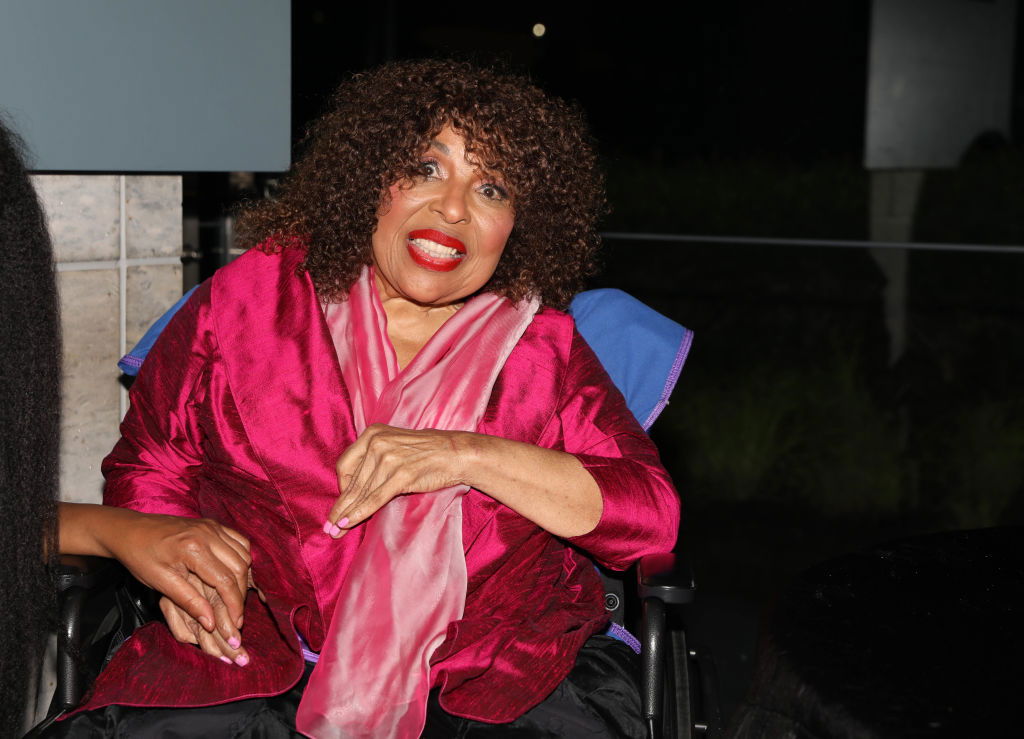
February 24, 2025
Roberta Flack Dies At 88 After Suffering Cardiac Arrest
Flack will be dearly and fondly remembered by her fans as a legend due to the music that she performed for them throughout her prodigious career.
Roberta Flack, one of the soulful singers who helped define the 1970s and brought Black nationalism into public conversation largely through the use of her unique gifts, her voice, her pen, and her piano, has died at 88 years old after suffering a cardiac arrest.
According to The Associated Press, Elaine Schlock, Flack’s publicist, said in a statement that the singer died at home surrounded by her family. In 2022, Flack revealed that she had been diagnosed with ALS, commonly referred to as Lou Gehrig’s disease, and had been rendered unable to sing.
Flack, a former schoolteacher, received her big break in 1971 when Clint Eastwood used “The First Time Ever I Saw Your Face” in his film “Play Misty For Me,” and Eastwood helped the song stay in its original format, as Flack recounted to the AP in 2018.
“The record label wanted to have it re-recorded with a faster tempo, but he (Eastwood) said he wanted it exactly as it was. With the song as a theme song for his movie, it gained a lot of popularity and then took off,” Flack said.
That song, which is one of the quintessential songs of Roberta Flack’s catalog, went on to win the 1972 Grammy for Record of the Year, followed in 1973 with “Killing Me Softly With His Song,” which made history as Flack became the first artist to win back-to-back Grammy awards for song of the year.
Flack was a classically trained pianist and a prodigy who received a full scholarship to Howard University when she was just 15 years old, but it took time for her to arrive on the charts after being discovered in the late 1960s by jazz musician Les McCann.
Flack became friends with Rev. Jesse Jackson as well as Angela Davis, whom she visited in prison when Davis faced charges from the United States government of murder and kidnapping, charges for which Davis was famously acquitted.
Flack also sang at the funeral of Jackie Robinson, the former Negro Leagues player who broke baseball’s color line.
Flack and Donny Hathaway, arguably one of the finest male voices in the history of music, recorded several sparkling songs together, one of which, “Be Real Black For Me,” became a touchstone for Black Americans and a representation of Black love.
As Flack told Vibe in 2022, as the pair’s million-unit-selling “Roberta Flack and Donny Hathaway” album marked its 50th anniversary, they shared a deep musical connection.
“We were deeply connected creatively. He could play anything, sing anything. Our musical synergy was unlike (anything) I’d had before or since,” Flack recalled.
Tragically, Hathaway died in 1979 after suffering a breakdown during a recording session for the album of duets between the two and fell to his death from a hotel room in Manhattan later that night.
Although Flack never repeated her early success, she did receive her flowers, both from the Recording Academy and one of music’s brightest stars, Beyoncé, who put Flack, Diana Ross, and Aretha Franklin in a pantheon of heroines in a remix to her song “Break My Soul” in 2022.
In 2020, Flack received a Lifetime Achievement Award from the Recording Academy alongside Issac Hayes, Public Enemy, and Sister Rosetta Tharpe.
In her acceptance speech, Flack expressed her deep love of music, “Music is everything to me,” Flack said. “Thank you for letting me into your hearts and allowing my music to be a part of you. Together, we have shared life’s triumphs, sorrows, joys, and dreams. All of it matters, each story in each heart. Challenge yourself to never give up.”
According to Jason King’s essay on the singer, “The Sound of Velvet Melting: The Power of ‘Vibe’ in the Music of Roberta Flack,” Flack had an outsized hand in exposing people to pro-Black imagery through her fashion.
“Flack’s engagement with black pride and beauty was also cross-lateralized in her visual image. The singer emerged as a potent Black fashion icon in the early 1970s, sporting large Afro (captured in full glory on the cover of Quiet Fire) along with dashikis and Afrocentric baubles, bangles, and beads. In 1975 Flack was one of the winners of the ‘best dressed award’ given by the National Society of Fashion, an organization ‘committed to the development and instillation of self-pride by bringing honor and recognition to outstanding sartorial members of the Black race.’ Flack’s Afrocentric glamour was part of the way she expanded the aesthetic terms of Blackness toward the redefinition of soul,” King wrote.
According to The New York Times, Flack has no immediate survivors, but she mentored young singers Luther Vandross and Peabo Bryson. In Dawn Porter’s recent documentary on Vandross, archival footage shows him crediting her with “firing him” so he could start his solo career.
Her fans will dearly and fondly remember Flack as a legend thanks to the music she performed for them throughout her prodigious career and her contributions to Black pride and the conceptualization of Black beauty.
RELATED CONTENT: Grammy Award-Winning Singer Roberta Flack Diagnosed With ALS; Singing Is ‘Impossible’